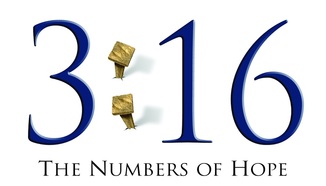
During my one year spent teaching high school Bible, I had students all over the mountain of intellectual arrogance. In my Sophomore homeroom, a few guys had planted their flag on the summit.
One morning a certain young man named Cliff was assigned the devotion. Yes, I know. Assigning devotions to unwanting high school boys ain’t the recipe for spiritual insight. But that’s the way it was done.
When I asked Cliff to come forward for the devotion, it was clear he hadn’t prepared a thing. I didn’t expect otherwise, but rules were rules. So he stepped to the front of the room.
Cliff ruffled through the pages of a Bible he stole from a friend and stopped suddenly in the New Testament. He slapped his finger on a verse and looked up with a sly smile. He cleared his throat and read, “For God so loved the world that he gave his one and only son so that whoever believes in him shall not perish but have eternal life.” He slammed the Bible closed and began walking back to his seat. He had done his duty and didn’t want to say anymore.
That wasn’t going to work for me. If Cliff didn’t have anything to teach us, then I had something to teach him.
“Cliff, answer me one question,” I said, stopping him in his tracks. “Since you appear to believe the meaning of John 3:16 is self-evident, what is the significance of the word ‘so’ in Jesus’ expression ‘God so loved the world’?”
Cliff sat down in his chair like he had yet again proven himself superior in a world full of ignorant beings. I figured it was time to nudge him off the peak of intellectual arrogance. So I began with a little tongue-in-cheek, “You are so wrong.”
For the next 5 minutes, I explained how Cliff and so many others have gotten the meaning of John 3:16 so wrong. I can only hope it woke him up to the idea that more could be learned. Even the simplest Bible verse can be packed with unexpected meaning you may need to hear.
Words Can Mean Everything
The greek word translated ‘so’ in most Bible translations is “houtos.” It’s an adverb. It has historically been translated “thus,” “so,” or “in this way.” Regardless of its English translation, “houtos” is intended to show “how” the action of a verb takes place.
The word “so” did communicate how actions take place in previous eras of the English language. However, the evolution of the English language demands an update. John 3:16 should now be translated: “For God loved the world in this way…”
How does that change the meaning of the text? Sending Jesus is how God expressed his love. God’s love is not an invisible emotion but a demonstrated historical fact. John 3:16 isn’t emphasizing the strong emotion that led God to send his son. It is unveiling how God’s love has taken place in the concrete actions of the man Jesus.
So What?
You may wonder: did I just pick on Cliff that day to show off the value of my Seminary education? Am I sharing this twist about John 3:16 to justify 10 years of undergraduate, graduate and post-graduate study of the Bible in Greek? I hope not.
I’ve found the significance of understanding the precise meaning of John 3:16 to be profoundly practical. Think about it. How many people have wondered how many times if God loves them? Have you? It is a perennial problem driving so many insecurities and pointless efforts to win God’s love.
When you understand that Jesus acted out the love of God for us in history, you get an answer to this question. John 3:16 says, “Don’t worry. Don’t doubt. Don’t wonder if God loves you. Why? Because he has demonstrated his love for us. Jesus’ presence on earth is a universal and timeless declaration from God, ‘I love you.’” Jesus is not desperately trying to exaggerate the size of God’s love. He isn’t speaking about the emotional fervor in the metaphorical heart of God. Jesus is saying, “I am the way God loved you. End of story.”
If you’ve read about what Jesus did, then you know you’re loved. You can put the questions aside. You don’t have to wonder if God is that into you. Jesus’ life’s work says He is.
Now that’s good news sitting right in the middle of the most popular verse in the Bible. Embrace it.






 RSS Feed
RSS Feed
